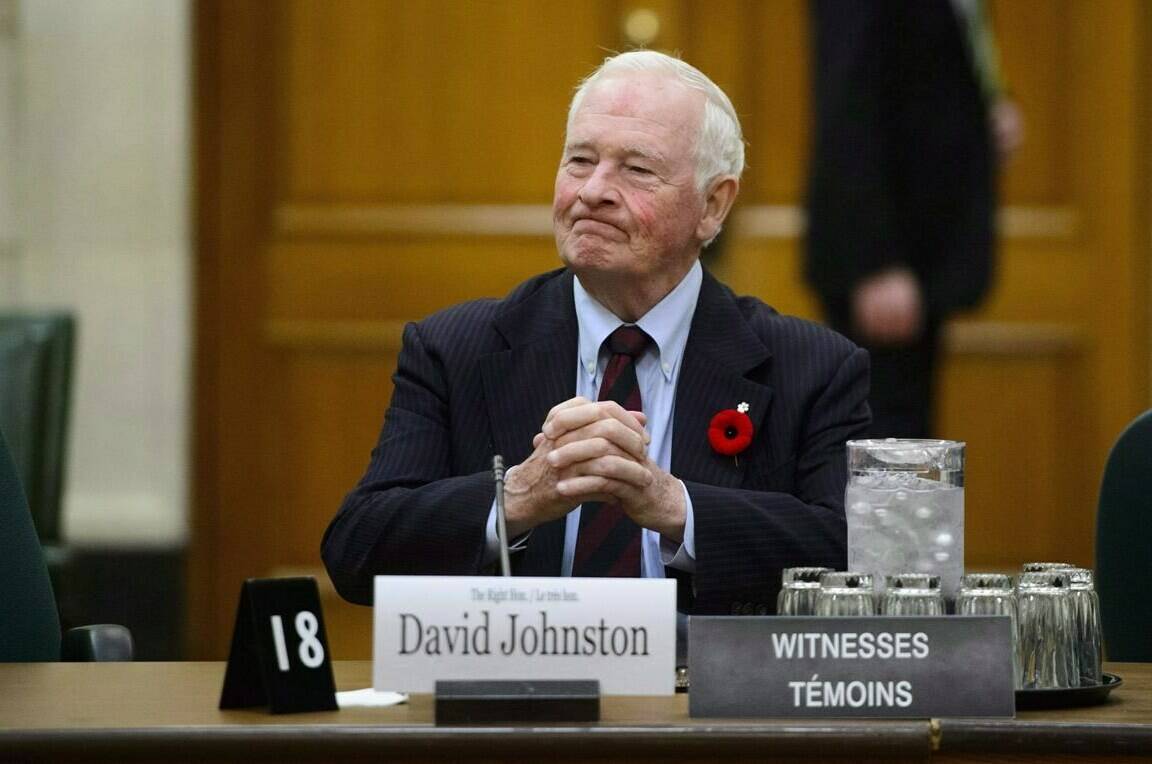Special rapporteur David Johnston says that a formal inquiry into foreign interference is not needed, but he will hold his own public hearings about the issue sometime this year.
The former governor general said an inquiry cannot be undertaken in public because of the sensitivity of the intelligence involved, and there would be considerable overlap with the work that he has already been doing to investigate the issue of alleged foreign meddling in the last two federal elections.
In order for his own public hearings to proceed, Johnston said he would not require the formal subpoena powers that a commissioner would receive if a formal inquiry was struck. The hearings could include testimony from diaspora communities, academics and political stakeholders.
“Canadians deserve forthright answers about the impact of foreign interference, and whether the government failed to act appropriately,” Johnston said during a news conference following the release of his initial report.
The report, released Tuesday (May 23), found serious issues in how intelligence from security agencies was communicated to government.
But it did not identify any instances where the prime minister negligently failed to act on intelligence, advice or recommendations.
In March, Prime Minister Justin Trudeau had asked Johnston to lead an investigation into the extent and impact of foreign interference in Canada, amid allegations that China meddled in the last two federal elections.
“There are serious shortcomings in the way intelligence is communicated and processed from security agencies through to government, but no examples have been identified of ministers, the prime minister or their offices knowingly or negligently failing to act on intelligence, advice or recommendations,” Johnston’s report said.
It said there is a “lack of accountability” about who is receiving what intelligence, a situation that is not acceptable given the current threat environment.
“I did find that there are significant and unacceptable gaps in the machinery of government,” he told reporters.
“Intelligence is decentralized and, in many instances, not well-communicated. It is not properly filtered to key decision-makers, and the accountability mechanisms in place are not sufficient.”
Johnston’s report also concluded, based on access to classified documents and security agencies, that specific accusations of interference that have dominated the political conversation were less concerning than media reports suggested.
“When viewed in full context with all of the relevant intelligence, several leaked materials that raised legitimate questions turn out to have been misconstrued in some media reports, presumably because of the lack of this context,” it said, pointing to reports from Global News and the Globe and Mail that have dominated the political conversation around interference.
Johnston said an inquiry digging into the allegations would have to take place almost entirely behind closed doors.
“That would defeat its primary purpose, which is public accountability through transparency,” the report said, adding the public process should “focus on strengthening Canada’s capacity to detect, deter and counter foreign interference in our elections and the threat such interference represents to our democracy.”
He told reporters: “A public review of classified intelligence simply cannot be done.”
Johnston’s report had also warned that excessive partisanship in the way the issue is discussed is making the country more vulnerable to external threats.
“There has been too much posturing, and ignoring facts in favour of slogans, from all parties. And many of those slogans turned out to be wrong.”
Opposition Conservatives have been clamouring for an inquiry.
Party Leader Pierre Poilievre had refused to meet with Johnston, describing the role of special rapporteur as a “fake job.”
In a statement on Tuesday reacting to the report, Poilievre called the investigation process “rigged from the start” and said it has “zero credibility.”
Poilievre said Johnston is “shamefully helping the prime minister cover up Beijing’s attacks on our democracy. This is outrageous, but not surprising.”
He said Canadians deserve answers and Trudeau “must ignore his fake ‘rapporteur’ and call a public inquiry now.”
The Tory leader had previously described Johnston as the prime minister’s “ski buddy.”
Johnston responded to that label directly Tuesday, discounting his so-called friendship with the prime minister.
“My friendship with the current prime minister was based only on a few ski expeditions with my children,” he said, noting the families had cottages near each other.
He said his impartiality or integrity has not been called into question before and said the dismissal of his work was “troubling.”
“This kind of baseless set of accusations diminishes trust in democratic institutions,” he said.
The Liberals have been weathering a political storm for months over whether they took the allegations of interference seriously enough, with the NDP calling for a public inquiry along with the Conservatives.
Johnston said during the Tuesday news conference that when he began the process in March, he thought he would likely recommend a public inquiry.
But he said he realized that was not the correct course of action because the intelligence he was reviewing “is, and must remain, secret.”
Johnston said the next stage of his mandate will be to investigate the use of classified intelligence in law enforcement, the role of the National Security and Intelligence Committee of Parliamentarians and the possibility of amendments to the Canadian Security Intelligence Service Act that might improve the process of intelligence-sharing or address foreign interference.
“I will also review the merits of a government-led process for declassification of information to enhance transparency, and look at the case for a national security Committee of Cabinet,” he said. “And I will examine the issue of how the government deals with threats against elected officials.”
Johnston’s work is expected to continue through the end of October, when he is due to present a final report to the government.
This report by The Canadian Press was first published May 23, 2023.
David Fraser, The Canadian Press
READ MORE: CSIS warns ‘smart city’ technology can open door to attacks, foreign interference

